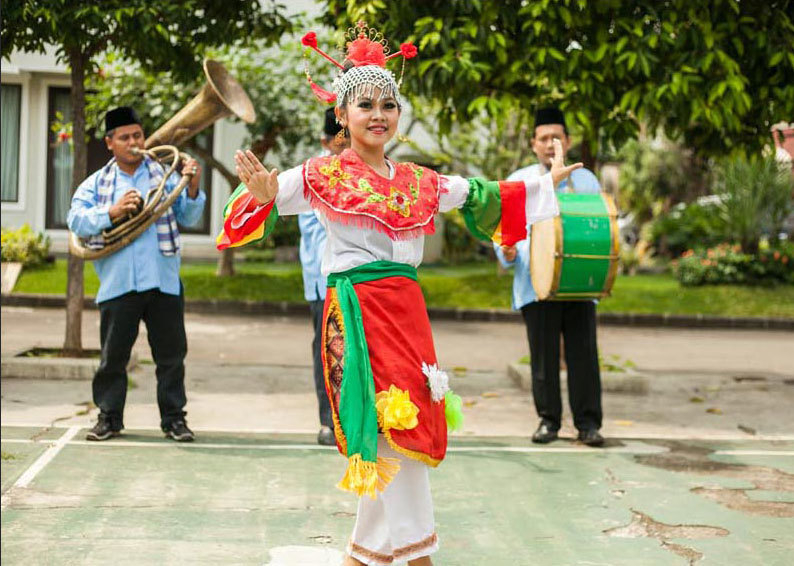A look at Betawi culture, and how cultural and heritage tourism is important to help reinforce an identity.

Thanks to rapid urbanisation, Jakarta has grown to a densely populated global city constantly welcoming more newcomers and expatriates. In light of this fact, the natives of Jakarta (famously known as the Betawi) are striving to preserve their own local culture and identity on the land of their ancestors. The Betawi emerged as an ethnic group in Batavia (now Jakarta) during the era of the Dutch East Indies.
Studies reveal that the Betawi are the most recently-formed ethnic group in Indonesia which consists of mixed blood of various tribes and nations such as, Javanese, Sunda, Malay, Ambonese, Bugis, Chinese, Arabs, Portugese and other non-Indonesians. Over a span of more than two hundred years, acculturation has been successfully formed along with a unique language, house style, forms of dance, music, rituals and ceremonies. Many Jakartan natives confessed that their once-rich tradition are gradually lost over generations due to progressive globalisation, forcing the Betawi to gain a distinct sense of ethnic pride and distance themselves from their former identities.

Addressing this rising concern, the Provincial Government, through the Jakarta City Government’s Tourism and Culture Office is looking to preserve the current Betawi culture as in line with the implementation of Government Regulation No. 229 of 2016 regarding Betawi Culture Preservation.
One concrete solution is the development of a Betawi Cultural Village at the south side of Jakarta in Setu Babakan. In this particular area, authorities collaborated with local communities to establish a cultural and heritage tourism destination that nurtures Betawi’s culture, featuring the physical and non-physical arts such as folklore, literature, architecture, traditional cuisine characterised by the Betawi culture.

Betawi Cultural Village is a 289-hectare land that is a true portrayal of the Betawi Community. For the government, an initial key to the project was gaining control of certain areas to be populated later on with cultural activities. As initially constituted, the project called for tourism potential that involved Cultural Tourism, Water Tourism and Agro Tourism. Since its establishment in 2003, these improvements have become models for future advancement in cultural and heritage tourism.
Betawi culture is the embryo culture of Jakarta as the capital city of Indonesia. Betawi Cultural Village reflects how identity and tradition constructed are fragile, especially by the process of rapid urbanisation and hyper globalisation. Through this project, however, the Betawi Cultural Village promotes cultural and heritage tourism that is expected to improved economic development of the local community as well as to revive Betawi tradition and attract local and global visitors.
This article is part of a story about Betawi Heritage Tour which took place at Betawi Cultural Village, Setu Babakan on 4 July 2019. NOW! Jakarta joined a media trip sponsored by Archipelago International, Indonesia’s leading International hotel group.
Betawi Cultural Village
Jalan Moch. Kahfi II, Setu Babakan, South Jakarta
T: +62 21 786 2861
Jakarta City Government Tourism And Culture Office
Jalan Kuningan Barat 2, South Jakarta
T: +62 21 520 5455, +62 21 520 9677
IG: @jakarta_tourism
FB: JakartaTourism
www.jakarta-tourism.go.id
This article is originally from paper. Read NOW!Jakarta Magazine August 2019 issue “Art & Culture – The Realm of Contemporary Arts”. Available at selected bookstores or SUBSCRIBE here.






